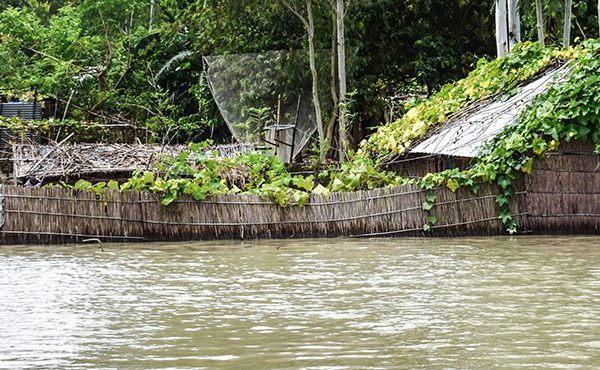A super cyclone, flooding and a pandemic: The year Bangladesh had three humanitarian crises at the same time
Reading Time: 3 minutes
Germany and China experienced severe flooding this year, while Turkey, Australia and the US faced wildfires of catastrophic proportions. These events signify what looks to be our collective future. Alongside mitigation, we need to be looking for new ways of responding to a changing climate. Bangladesh, a country often referred to as the ground zero of climate change, has worked with communities to tackle disasters for half a century.
What has it learnt? Build resilience at the community level.
Extreme and overlapping natural disasters are part of a new normal for the world. The rapidly warming planet has led us to the hottest summers in recent history, with July 2021 officially being the hottest month ever recorded. How does the world counter? By equipping those closest to the challenge.
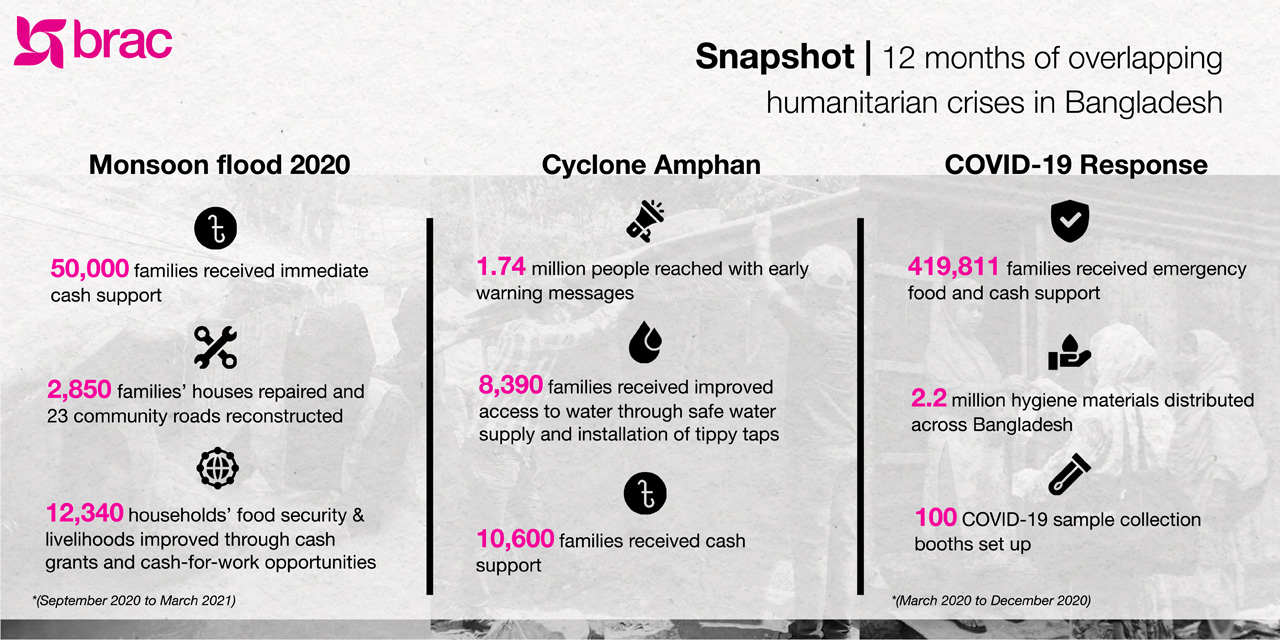
People closest to the challenge are often closest to the solution. Community is at the centre of BRAC’s approach, with all its staff and volunteers from the community itself, creating systems and allowing immediate response when disasters strike. When the COVID-19 pandemic hit Bangladesh in March 2020, equipping people with the right knowledge and tools to remain safe was prioritised. Staff and volunteers within the community delivered life-saving messages to their own communities.
The impacts of the pandemic extended beyond a public health issue – it was a battle of survival for millions. BRAC’s response included cash support to combat the economic impacts of the pandemic. Food and cash were distributed to 419,800 families, and communities received COVID-19 safety boxes and hygiene products.
Read more: Climate solutions from Bangladesh: The Climate Bridge Fund
A crisis within a crisis within a crisis
As Bangladesh tackled the pandemic, the strongest cyclonic storm ever recorded in the Bay of Bengal hit the coastal regions. Not long after, the longest spell of floods in years swept across the northern regions.
Managing the back-to-back damages caused by the cyclone and then the floods, in the middle of the pandemic, gave rise to a critical humanitarian crisis. Minimising the effects of the adversities while building on the resilience of the impacted communities became vital.
Tackling a super cyclone
Cyclone Amphan, which hit the Bangladesh coasts on 20 May 2020, was one of the most powerful cyclones the country has seen in the last two decades, affecting nearly 14.2 million people in the coastal districts.
The cyclone took at least 26 lives and damaged a total of 261,000 houses along with infrastructure, crops, fisheries and livestock, and water resources. The cost of total damage is estimated at around USD 1.3 billion across the affected coastal districts.
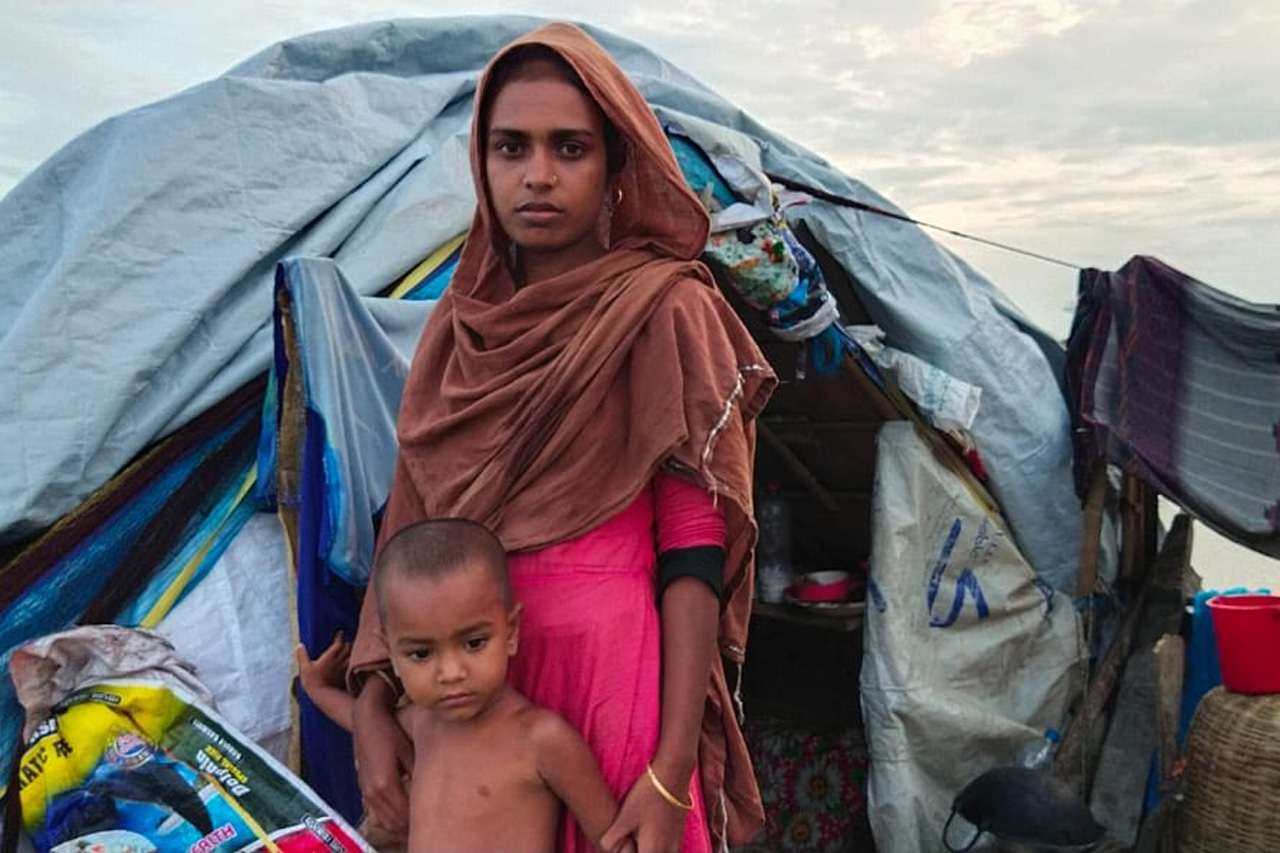
Selina Khatun stayed in a temporary shelter on the embankment, after Cyclone Amphan swept away her house in Assasuni, Satkhira, southern Bangladesh
Read more: Cyclone simulations save lives in coastal areas
Staying afloat during the second-longest floods in two decades
Monsoon floods are recurrent in Bangladesh but in 2020, while the country was still recovering from the cyclone, it saw one of the longest floods it has experienced since 1998. From the last week of June 2020, nearly one-third of the country was flooded, impacting over 5 million people across 33 northern and north-eastern districts.
“We rushed to store our grain when we saw the water rising. When we came back, all our ducks, chickens and crops had drowned. Our crops and animals sustained our family throughout the lockdown. The flood took everything,” says Aliza Begum who lives in Kachua village in Gaibandha, northern Bangladesh.
Along with the displacement of millions of people, the flood damaged crops and seedbeds worth nearly USD 42 million and the loss of livestock was worth USD 74.5 million.
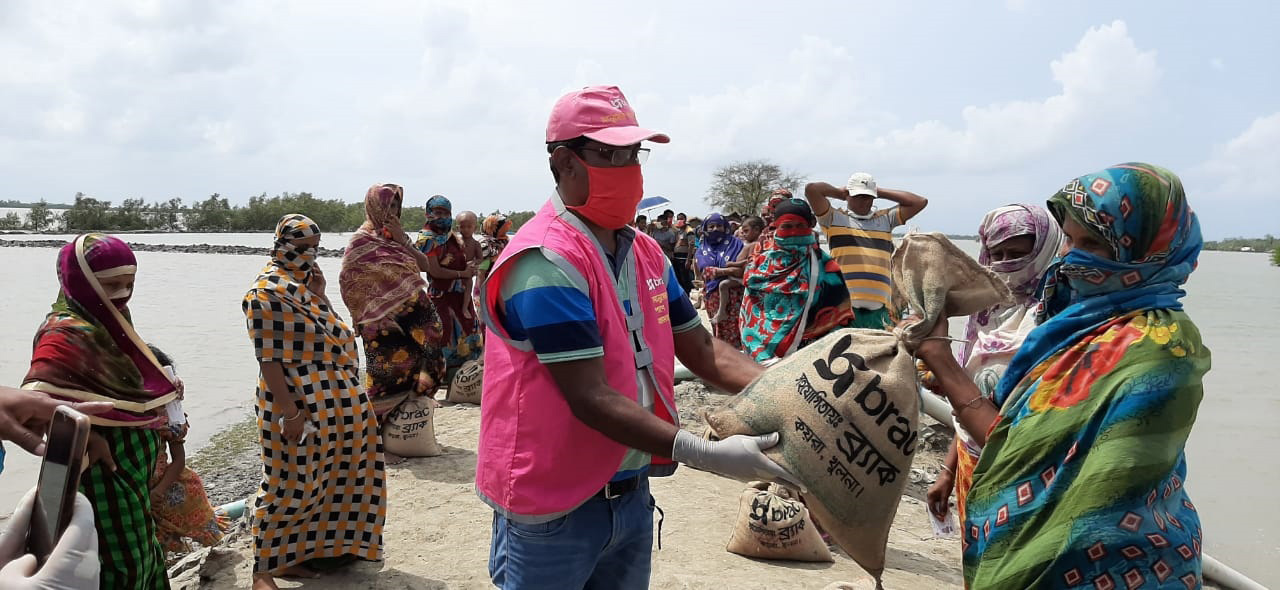
Emergency food distribution after Cyclone Amphan in Koyra, Khulna, southern Bangladesh
BRAC’s support evolved from immediate food security to resilience building.
In the early stages of both the crises, communities were mobilised – warning signals and preparedness messages were disseminated by staff and volunteers. Immediately after the flood, the communities which were hit the hardest and had little to fall back on received safe drinking water, food packages, and cash support. 10,600 of the families worst affected by Cyclone Amphan and 50,000 families affected by the flooding were supported with immediate relief.
Bably Surya, who leads BRAC’s district disaster management team in Bogra, recalls the flooding: “In those moments, drinking water can really save lives. We also supported families with cash and repairs to their homes.”
Read more: Avoiding the supposedly unavoidable
The losses incurred by communities most vulnerable to the flooding were well beyond immediate relief. Hence, from September, 12,500 families living in Jamalpur, Lalmonirhat and Sirajganj districts – regions worst affected by the floods – began on a journey to recovery.
The community decided on which needs needed to be prioritised urgently. For people who lost livelihoods, providing opportunities for income was vital. They engaged in cash-for-work to begin bouncing back from the economic shock. Repairing shelters with flood and cyclone resistant features, improving water, sanitation and hygiene facilities and ensuring safe drinking water were also vital needs for the community.
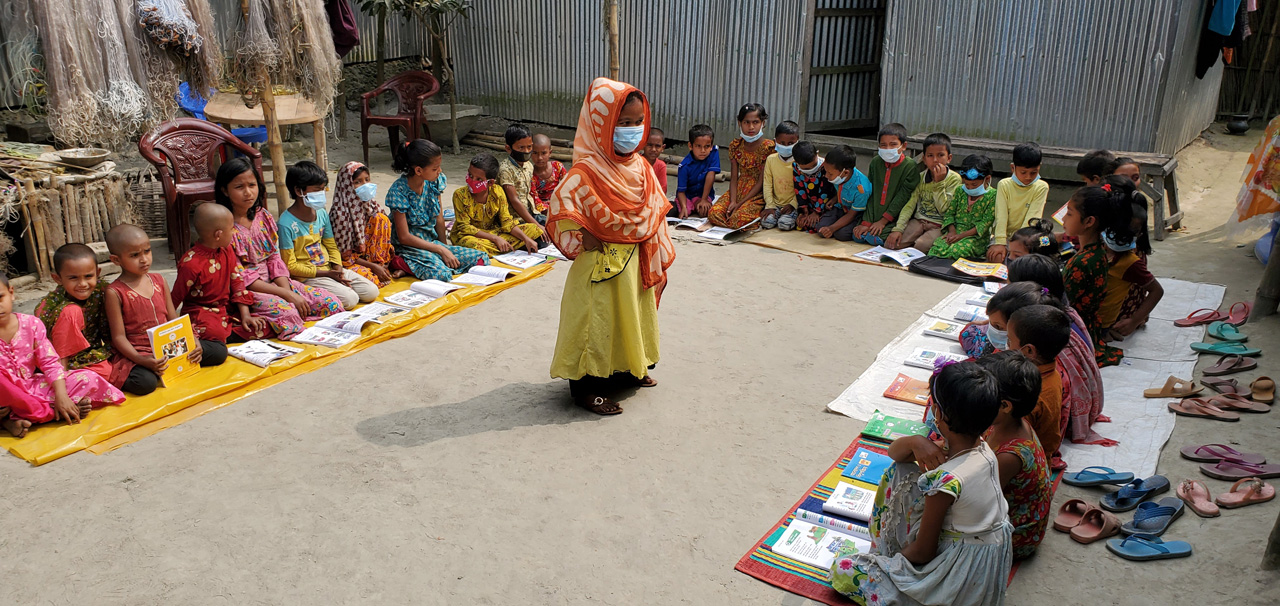
Participant from the flood recovery project educates children of the village about ways to combat floods and preventions of future floods
Any intervention must be inclusive. BRAC’s responses ensured gender equality with special priority to households which had people living with disabilities and chronic illness, pregnant women, lactating mothers and the elderly.
As the world prepares for a warmer planet in the future, Bangladesh will have to continue strengthening its resilience-building at the community levels. Throughout this endeavour, BRAC will continue to strengthen systems within the communities and stand by the people who are the worst affected by the impacts of a changing climate.
Khondoker Golam Tawhid is programme head, knowledge management and monitoring & evaluation, BRAC Humanitarian Programme.



